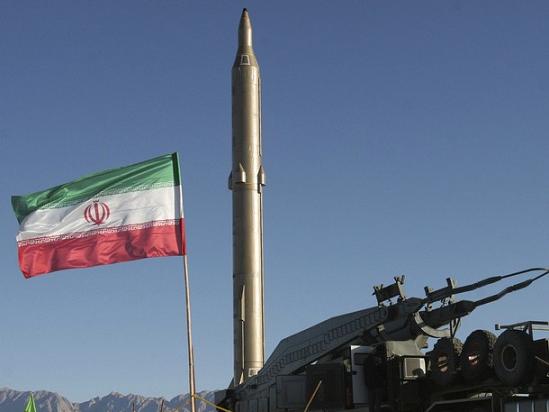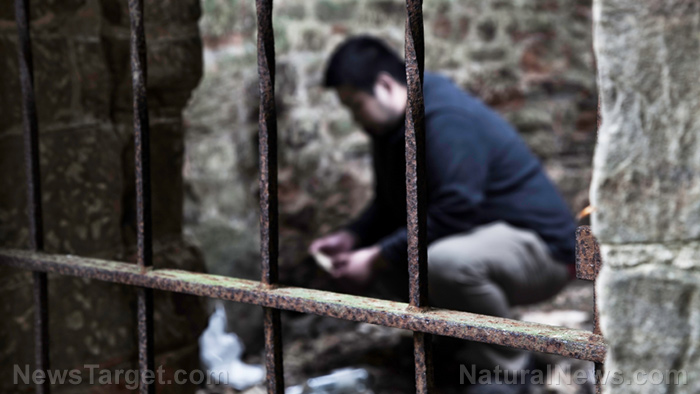 Parler
Parler Gab
Gab
Tehran has enough enriched uranium for 3 ATOMIC BOMBS
Iran consistently denies any plans for nuclear weapons, emphasizing the peaceful nature of its nuclear program. But in one confidential IAEA report, it was learned that Iran has enough uranium enriched up to 60 percent, close to weapons-grade, for three atomic bombs. Iran's stock of uranium enriched grew by 6.7 kilograms (14.8 pounds) to 128.3 kg (282.9 lbs) since the last report on Sept. 4, according to Reuters. That is more than three times the roughly 42 kg (92.6 lbs) that, by the IAEA definition, is theoretically enough for a nuclear bomb if enriched further. (Related: Thanks, Obama: U.S. defense official declares Iran can construct a nuclear bomb ‘in about 12 days.’) "That's quite an amount, especially if you don't use it for anything," a senior diplomat told Reuters, referring to the fact Iran is the only country to enrich such a high level without producing nuclear weapons. Additionally, the report revealed that Iran's estimated stockpile of enriched uranium had exceeded 22 times the limit set in the 2015 accord between Tehran and world powers. As of Oct. 28, Iran's total enriched uranium stockpile was estimated at 4,486.8 kg (9,891.7 lb), a significant increase from August. The 2015 deal aimed to curb Tehran's nuclear program in exchange for lifting international sanctions. The development raises concerns about Iran's adherence to the terms of the nuclear deal, especially as tensions persist with major world powers. The unraveling of the 2015 deal began in 2018 when then-U.S. President Donald Trump unilaterally withdrew from it and reimposed sanctions. Iran responded by intensifying its nuclear activities, leading to a renewed focus on the country's nuclear ambitions. Efforts to revive the nuclear deal through European Union-mediated negotiations have faced challenges, reflecting the complex geopolitical landscape surrounding Iran's nuclear activities. The IAEA's hope for a prompt resolution of the inspectors' withdrawal underscores the urgency of addressing issues related to Iran's nuclear program to maintain international stability and security. The diplomatic intricacies involved highlight the delicate balance required to navigate such critical matters on the global stage. Watch former National Economic Council Director Larry Kudlow discuss whether President Joe Biden's policies have emboldened Iran. This video is from the NewsClips channel on Brighteon.com.More related stories:
Iran Nuclear Deal’s UN Security Council Res. 2231 banning missile transfers to Iran EXPIRES – Iran now free to send and receive missiles, drones and hypersonic weapons. House passes resolution aiming to block Iran from obtaining nuclear weapons. Israeli top official warns Iran’s uranium enough to build up to 5 NUCLEAR WEAPONS. Sources include: AlJazeera.com Reuters.com Brighteon.comBinance pleads guilty to breaking U.S. anti-money laundering laws
By Arsenio Toledo // Share
Anti-Jewish hate crimes SKYROCKET by 214% in Democrat-run NYC
By Zoey Sky // Share
Women now work in mines because Ukrainian men were sent to the battle front: Reuters
By Belle Carter // Share
The government debt crisis that we have been warned about for decades is happening right now
By News Editors // Share
Vice contributor sentenced for distributing child-rape porn, attempted rape of nine-year-old
By News Editors // Share
TARGET’s sacrilegious “Christmas” and LGBTQ grooming invites mega boycott
By News Editors // Share
Governments continue to obscure COVID-19 vaccine data amid rising concerns over excess deaths
By patricklewis // Share
Tech giant Microsoft backs EXTINCTION with its support of carbon capture programs
By ramontomeydw // Share
Germany to resume arms exports to Israel despite repeated ceasefire violations
By isabelle // Share










